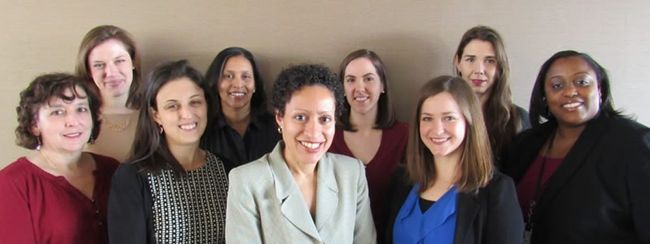Child and Adolescent Psychiatry Research

Current child and adolescent psychiatry research projects include:
A Randomized Controlled Trial of Quetiapine for the Treatment of Youth with Co-Occurring Substance Use Disorders and Severe Mood Dysregulation
This research study recruits youth ages 15-24 who have noticeable mood swings and use alcohol, marijuana and/or other drugs. The purpose of this research study is to find out if quetiapine (Seroquel) can help youth with mood symptoms and substance use.
PI: Amy Yule, MD
Collaborative Office Rounds (COR)
The Collaborative Office Rounds is an opportunity for pediatric primary care colleagues to enhance their confidence, knowledge and skills to address behavioral health issues in minority and underserved primary care settings. The collaborative case-based learning rounds allows for shared learning and collaboration between BMC developmental and behavioral pediatrics, child and adolescent psychiatry, and our community partners.
PI: Michelle P. Durham, MD, MPH
Funding Acknowledgement: HRSA Division of Maternal and Child Health
Quality Improvement (QI) Project to Improve Patient Engagement
This quality improvement (QI) research project seeks to better understand the factors that predict patient engagement in, and dropout from, child psychiatry services at BMC. The findings of this project will be used to improve service delivery at BMC to facilitate patient engagement in child psychiatry, and to inform child psychiatry service delivery more broadly.
PI: Andrea Spencer, MD
TEAM Up for Children (Transforming and Enhancing Access to Mental Health in Urban Pediatrics)
This four-year project focuses on establishing how to best address behavioral health needs of vulnerable children and families within the medical home in three community health centers (Dimock, Codman and Lowell). The project uses implementation science methods to develop and study a clinical model and learning curriculum designed to build capacity for behavioral health integrated primary care practice in pediatrics, especially with multicultural, traditionally underserved and low-income communities. For more information about our program, visit our site.
Director for Evaluation: Megan Merritt-Bair, MD, MSCE
Director of Clinical Training: Michelle Durham, MD
Funding Acknowledgement: TEAM UP is supported by the Richard and Susan Smith Family Foundation and the Robert Wood Johnson Foundation
Revolutionizing Equal Access to Care and Health (REACH) for ADHD
The mission of REACH for ADHD (Revolutionizing Equal Access to Care and Health for ADHD) is to develop, test, and implement novel strategies to improve the lives of diverse individuals with Attention-Deficit/Hyperactivity Disorder (ADHD). In particular, our program focuses developing strategies to reduce disparities in ADHD detection and treatment, to address environmental contributors to the disorder, and to improve continuity of care. Our current projects include: 1) a 3-year project funded by the Gordon and Betty Moore Foundation and the Boston University Clinical and Translational Science Institute (CTSI) to develop a community health worker-led intervention to improve engagement in ADHD care; 2) an assessment of the psychometric properties of a revised ADHD Stigma Questionnaire and its Spanish adaptation; and 3) a National Institutes of Mental Health (NIHM)-funded project to develop an intervention targeting social determinants of health (SDoH) for low-income preschoolers with early symptoms of ADHD. For more information about our program, visit our website.
PI: Andrea Spencer, MD – Associate Director of Integrated Pediatric Behavioral Health at Boston Medical Center
Funding Acknowledgement: Gordon and Betty Moore Foundation; Boston University Clinical and Translational Science Institute (BU-CTSI) Integrated Pilot Grant; National Institutes of Mental Health K23 Award.




